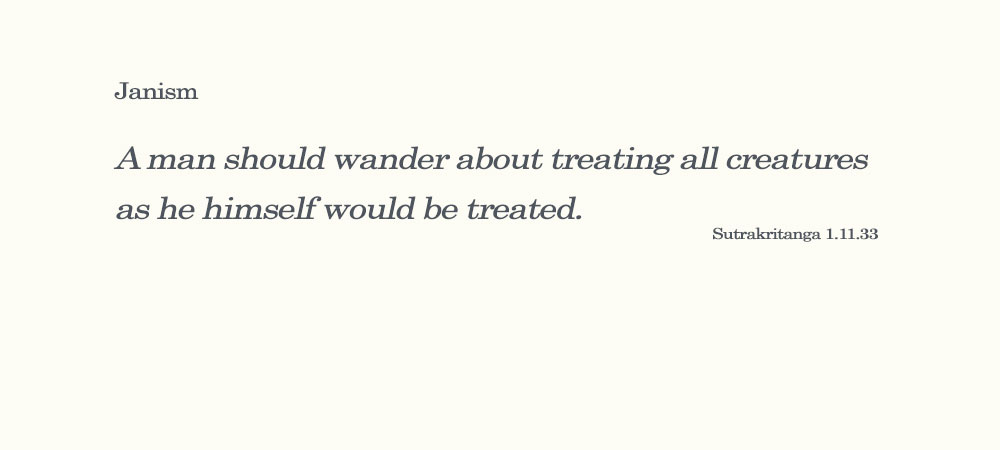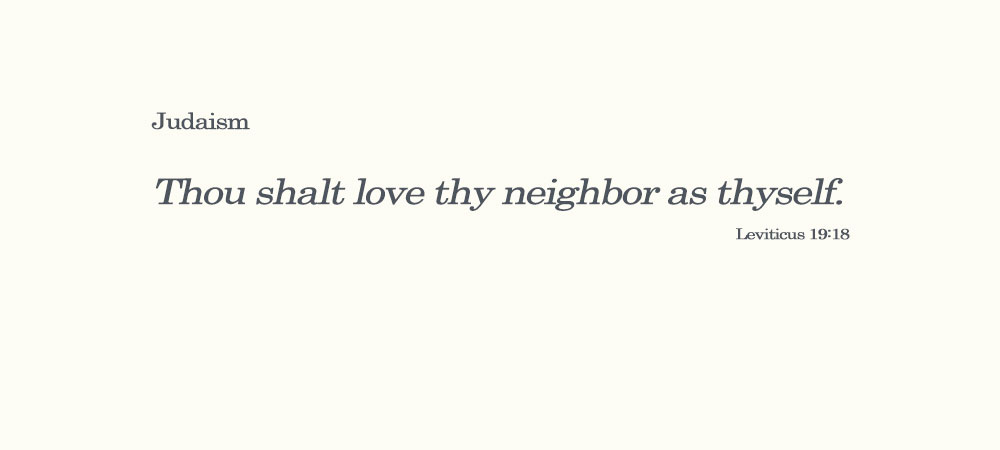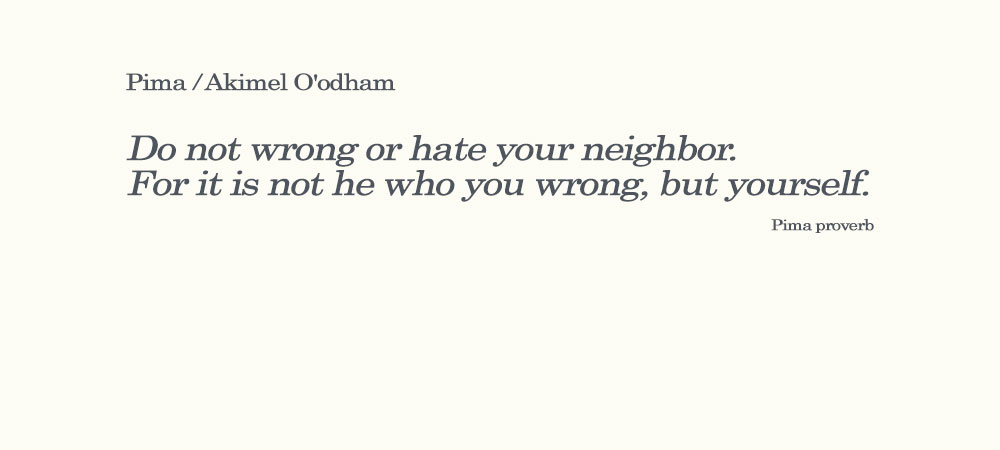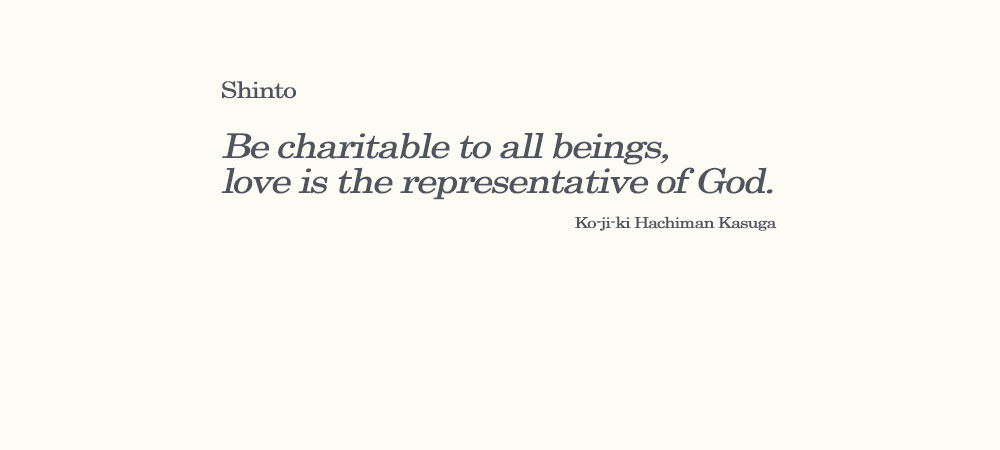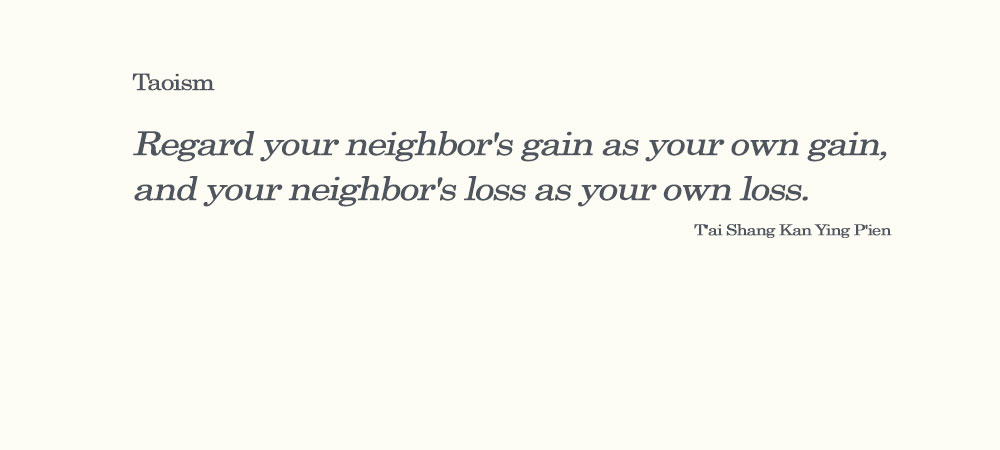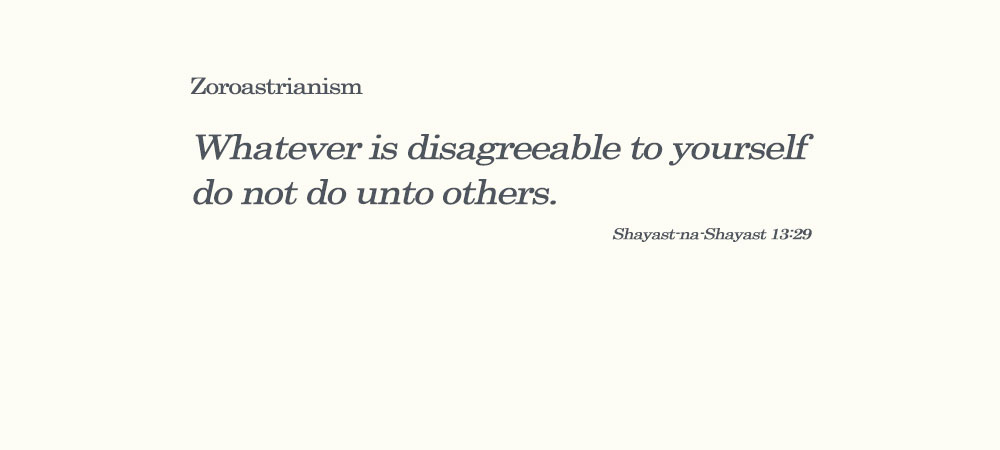Our strength shall be in union and our way the way of reason, righteousness and peace.
Deganawidah (circa 1450)
There is one great God and power that hath made the world and all things therein, to whom you and I, and all people owe their being and well being, and to whom you and I must one day give an account, for all that we do in the world. This great God hath written his law in our hearts, by which we are taught and commanded to love, and help, and do good to one another and not do harm and mischief to one another…
…I have great love and regard towards you and I desire to win and gain your love and friendship, by a kind, just, and peaceable life;…
William Penn (1644 – 1718)
Excerpt of a letter from William Penn to the Kings of the Indians in Pennsylvania, October 18, 1681
It is a universal personal rule:
We must treat others as we wish to be treated.
Nations, also, must treat other nations as they wish to be treated.
When they don’t, chaos and violence follow.
When they do, stability and peace are obtained.
Nobel Peace Laureats
14th World Summit Final Statement
2014 December
Principles of Peace
According to the Dalai Lama, “Every religion emphasizes human improvement, love, respect for others, sharing other people’s suffering. On these every religion had more or less the same viewpoint and the same goal.” A cornerstone of these religious teachings is the Law of Mutuality, known to many as “The Golden Rule ” or the “Ethic of Reciprocity.” Variations of this univeral principle can be found in sacred, religious, philosophic and humanistic traditions worldwide and throughout the ages.
It is a declaration of the interconnectedness of all and a call for each to act in recognition of it. On April 16, 1963, in an open letter from a Birmingham, Alabama jail, Dr. Martin Luther King, Jr. wrote, “We are caught in an inescapable network of mutuality; tied in a single garment of destiny. Whatever affects one directly, affects all indirectly.” When we consider the consequences of this rule in all we do and act accordingly, it is one of the most profound principles of peace.
1961 illustration, “Golden Rule” by Norman P. Rockwell (1894 – 1978)
Browse at your own pace. Place your cursor on the slide to stop the slide and click on the arrows to advance each slide manually.
It shall be the duty of all of the Five Nations Confederate Lords, from time to time as occasion demands, to act as mentors and spiritual guides of their people and remind them of their Creator’s will and words. They shall say:
Hearken, that peace may continue unto future days!
Always listen to the words of the Great Creator, for he has spoken.
United people, let not evil find lodging in your minds.
For the Great Creator has spoken and the cause of Peace shall not become old.
The cause of peace shall not die if you remember the Great Creator.
“The Constitution of the Iroquois Nations: The Great Binding Law, Gayanashagowa” (circa 1451)

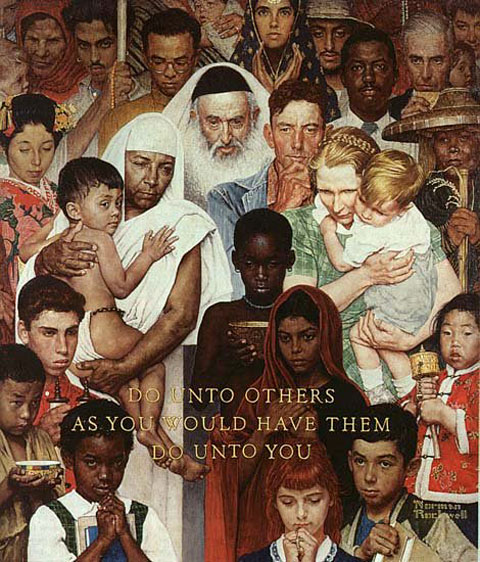
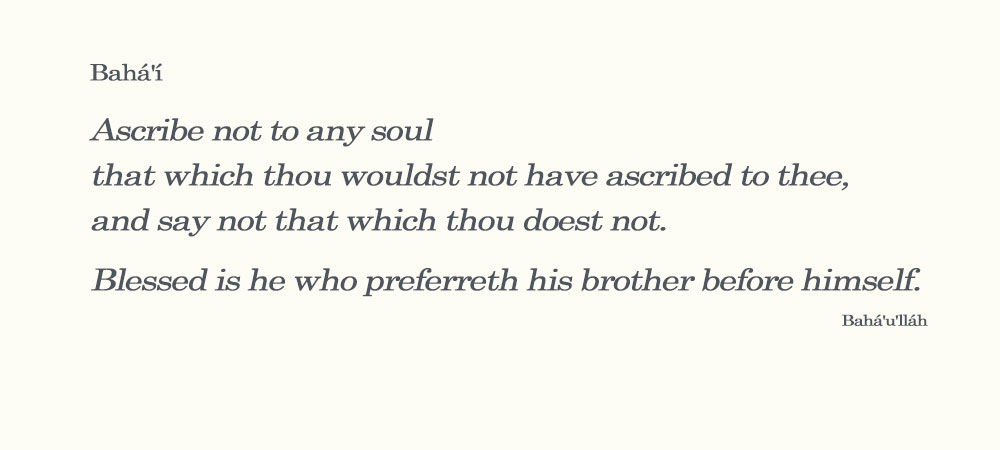
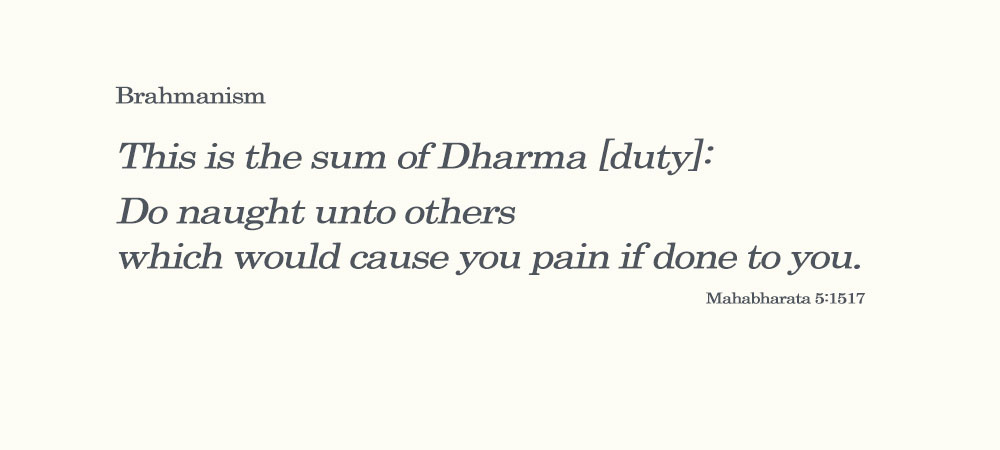
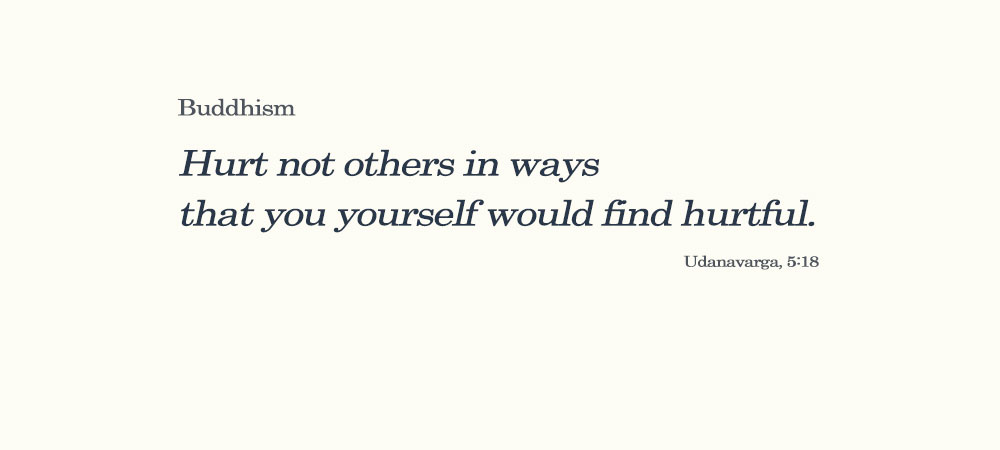
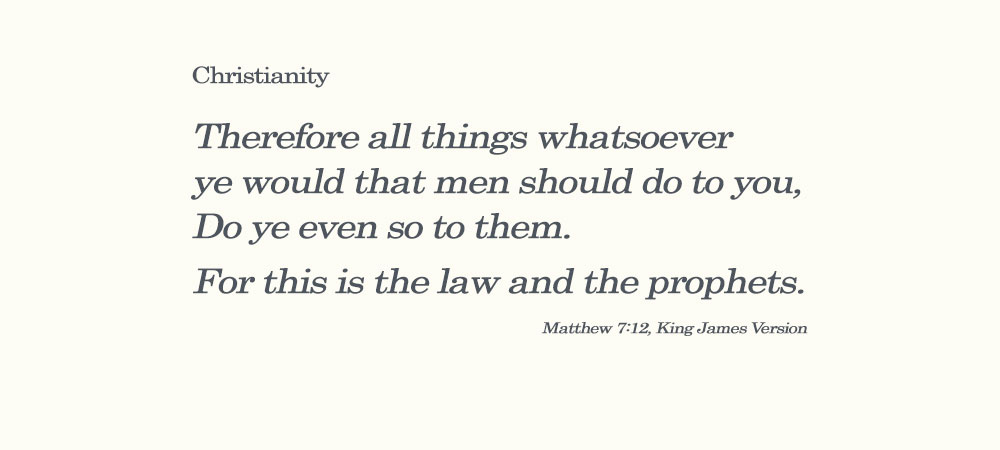
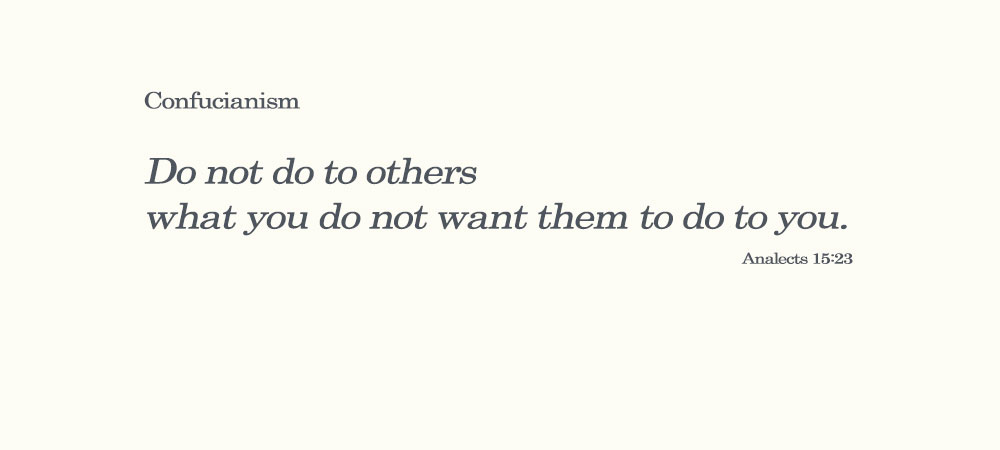
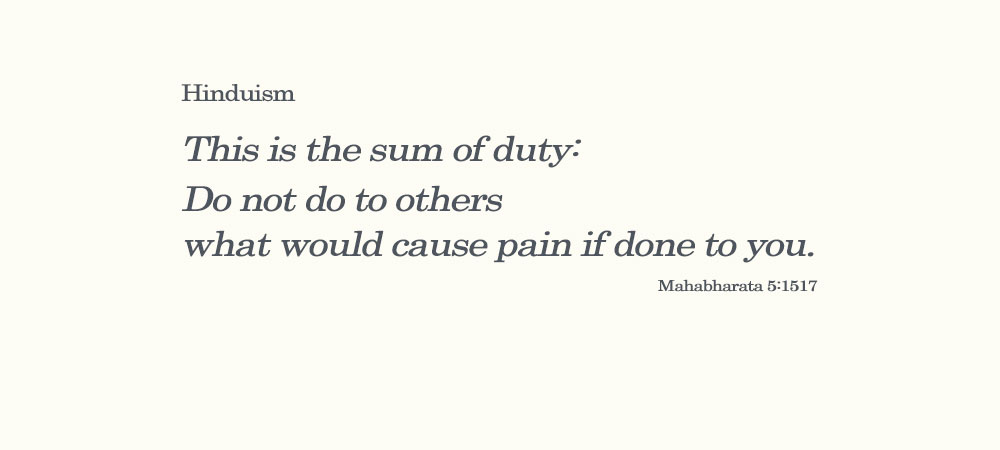
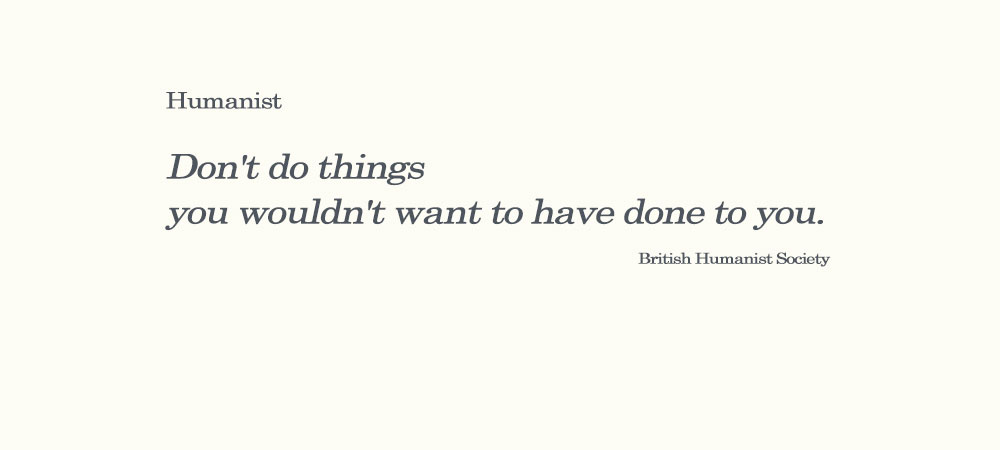
![None of you [truly] believes until he wishes for his brother what he wishes for himself. Number 13 Imam Al-Nawawi's “Forty Hadiths”](https://www.ampeace.org/wp-content/uploads/2013/09/RSlider_ExhibitSlide1_1000x450_PoP_Islam1_AlignLeft.jpg)
